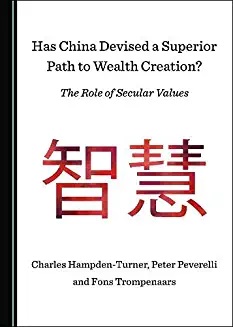China has been dominating the media for a number of years. Apart from the occasional problems with unrest in peripheral regions, most of if the media stories are positive, raving about the high speed of economic development in one of the world’s most populous nations.
Entertainment in China’s major cities like Beijing and Shanghai is on par with that in the big cities of the world. Your Chinese friends seem to change their mobile phones about twice per year, lest they will be regarded as out of fashion by their peers.
They swapped their bikes (do you still remember Katie Melua’s hit?!) for cars years ago, clogging the roads of the nation’s cities.
Some Internet content may be restricted there, but China rules where Internet technology is concerned. I myself hardly receive emails from China anymore, at least not personal messages from friends. That communication has moved on to WeChat, the Chinese communication tool that is conquering the world.
China has organized the Olympics and the World Expo. We are only waiting for the next global event to go to China.
You could easily forget that all these developments have taken place at an incredible speed. China has gone through changes in about 3 decades that have taken the Western nations at least double that time.
What do you know about life in China before the beginning of the economic reforms in 1980? You may have heard or read about that ‘Cultural Revolution’, and seen pictures of young Chinese upholding their copy of the Little Red Book with quotes of Mao Zedong, the revolutionary leader. He died late 1976, the year that marks the end of the Cultural Revolution, that had started a decade before
You may even have seen photographs of people paraded around with big hats on their heads and boards around their necks stating their sins, like being a ‘capitalist roader’ (what the h… is that!?).
But . . . what do you know about the daily life of Chinese citizens in that era? Surely they could not spend all their days waving little red books and parading their fellow citizens? They must have got up in the morning, eaten breakfast, went off to work, just like people in other parts of world.
It is easy enough to find books about the political upheaval of that era in China, but much harder to learn about the lives of ordinary citizens. A few books have been written by Chinese living abroad, but they seem to emphasize the hardship of the families that were on the wrong end of the political equation at that time and emphasize the hardship of those criticized as ‘rightists’.
I had the privilege of being able to spend a year in China as a student from September 1975 to August 1976, a month before Mao died and the Cultural Revolution ended.
Because it was that final year of the Cultural Revolution, it turned out to be quite an eventful year. I recently published a book about that year in China entitled One Turbulent Year – China 1975.
It is based on the diary that kept during that year, but it is much more than a simple story about what I did and experienced on a day to day basis.
The book is description of the everyday life in China as experienced by one of the first groups of foreign students allowed in, when China carefully opened its door a little towards the end of the Cultural Revolution period.
I use ‘students’, plural, because I am not the only central character in this book. Soon after my arrival, with another Dutch student, we formed a small group of close friends willing to absorb China with an open mind.
Surely, our life during that year did not reflect the lives of the ordinary citizens of China’s capital, but because we cycled to the city on our bikes, rode through in crowded buses, shopped in local shops and dined in local restaurants, we were undoubtedly the ones closer to the Chinese citizens that any other group of foreigners living in Beijing.
In the following items of this blog, I want to share parts of my book with you by copying sections from the chapters, adding some new personal comments.
I hope that this blog can serve as a time window to the China of only a few decades ago, and that it will show in what ways life differed then and in what other ways the China of the 1970s reflected Chinese culture as much as that of the China of the 21st Century.
If you like this story and would like to read all of it, you are invited to buy the book. Benelux citizens can order a copy, signed if needed, directly with the author. Others can order it at Amazon.

